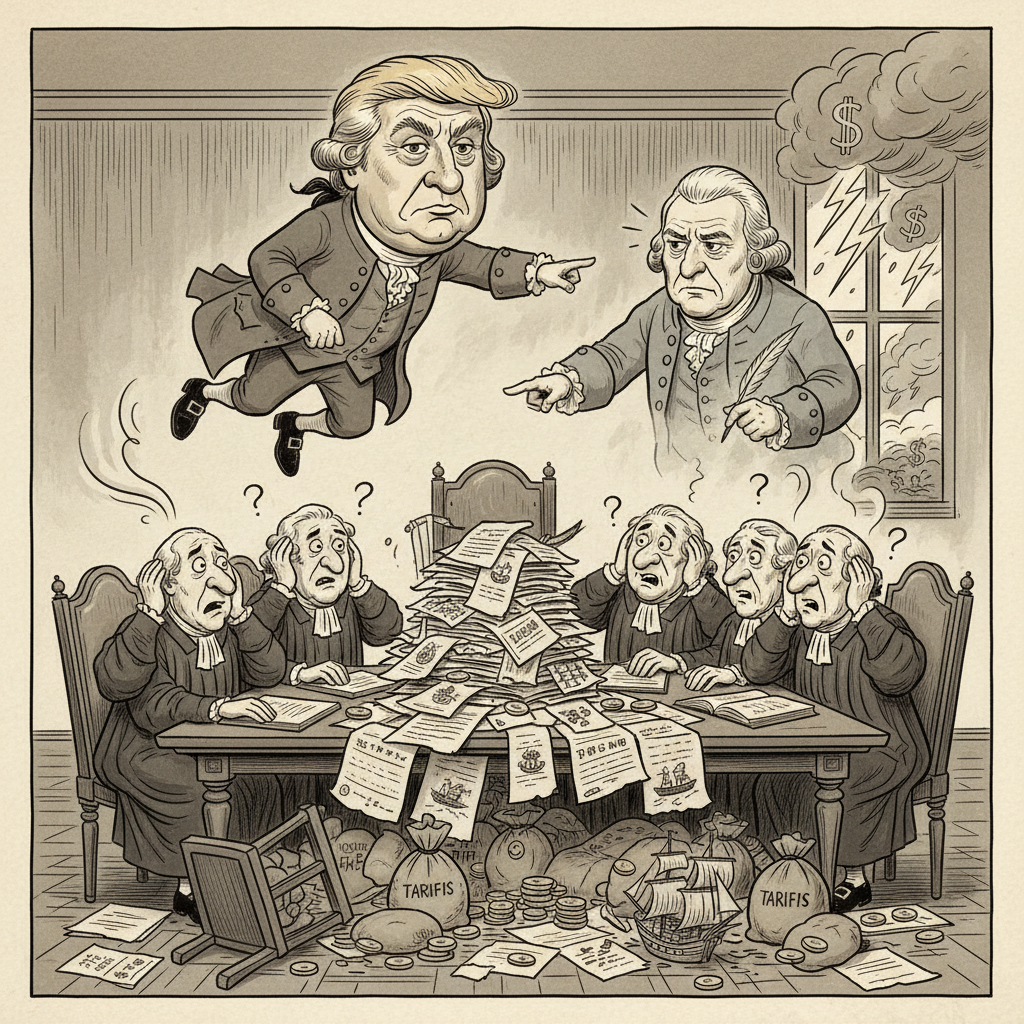The Supreme Court prepares to issue a potentially landmark ruling on the executive's power to impose tariffs, a decision widely anticipated as the "most important case ever."
Details:
- The High Court is weighing the legality of President Trump's sweeping tariffs, challenging the executive branch's authority in matters traditionally reserved for Congress.
- Arguments before the nine justices explored the precise definition of "revenue bills" and the delicate balance of economic power, a debate eerily similar to colonial objections to parliamentary imposts.
- This unprecedented judicial scrutiny into economic instruments revives foundational questions about where taxation authority ultimately resides and the consent of the governed.
- The entire process unfolds against a backdrop of public disinterest, as if the imposition of duties by a distant, unelected body were merely a routine administrative function.
Why it Matters:
This isn't merely a squabble over trade policy; it is a direct confrontation with the specter of arbitrary economic governance, echoing the very grievances that ignited the American Revolution. The colonists rightly agitated against taxation without representation, seeing it as an assault on property and liberty. To allow executive power to bypass legislative deliberation on such fundamental economic levers is to subtly erode the republican foundations upon which the nation was built. The historical parallels are stark. Just as John Dickinson's "Letters from a Farmer in Pennsylvania" were then provocatively announced as '_JUST PUBLISHED._', dissecting the unconstitutional nature of imperial duties, today's court grapples with whether modern executive action mirrors that same overreach, albeit under a different banner. The public’s complacency in this slow-motion constitutional drama is perhaps the most worrying import.
